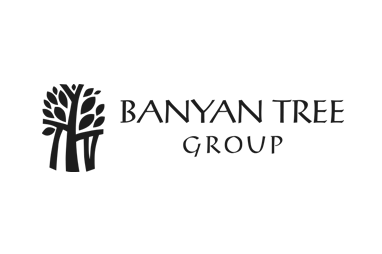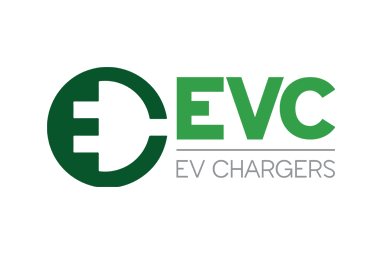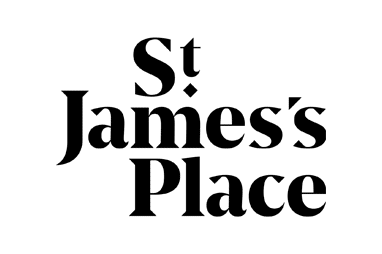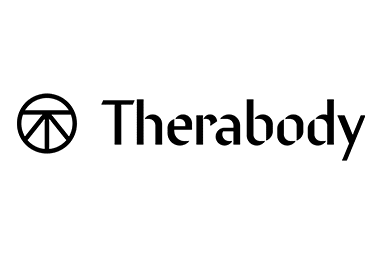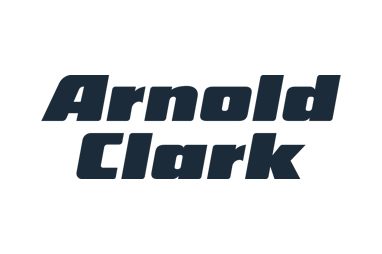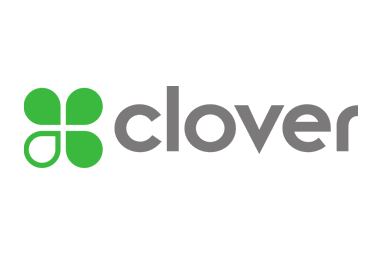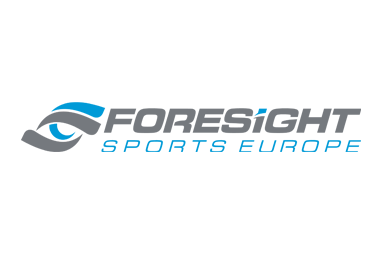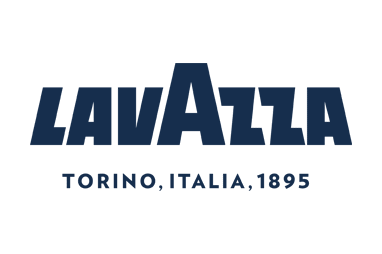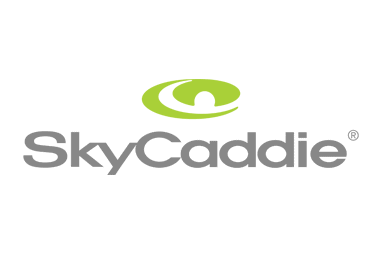COVID-19 Sole Trader or Partnership scenarios in Ireland
COVID-19 Sole Trader or Partnership scenarios in Ireland
The PGA have created various scenarios to provide guidance on government support for self employed Members in Ireland.
CLICK HERE if you are based in the UKBackground
The Professional Golfers’ Association is aware that self-employed PGA Professionals use a variety of business models in order to deliver their services. Almost every PGA Professional is currently affected by business interruption due to the COVID-19 emergency, while government advice and support is evolving almost daily.
Against this background, the Association is keen to provide some clarity to members on what government support is currently available under a number of scenarios, depending on how their individual businesses are constituted, and how this support might be accessed. This information is for guidance only. It is not intended to be prescriptive and legal and accounting/tax advice should be sought where appropriate.
Types of business model
The key business situations under consideration are:
- Sole trader or partnership
- Limited companies
- Multiple income sources e.g. employed for some services, self- employed for others
SOLE TRADER OR PARTNERSHIP
Definition
A sole trader is a person who is the exclusive owner of an unincorporated business, entitled to keep all profits after tax has been paid, but liable for all losses. It is relatively simple to set up as a sole trader in Ireland but if the business fails, the owner’s personal assets could be used to pay its creditors. The main legal obligation is the need to register as a self-employed person with the Revenue, and if there is a unique business name it must be registered with the Companies Registration Office (CRO).
A partnership is where 2 or more people (up to a maximum of 20) carry on a business venture with a view to making a profit, without having formed a company. The governing default legislation is the 1890 Partnership Act, unless a formal partnership agreement has been drawn up, preferably with legal input, and agreed by all parties. The partners are jointly responsible for running the business and if it fails all partners are jointly responsible for the debt, and for any contractual obligations that may exist. A partnership does not have a separate legal personality distinct from its partners and cannot own property in its own name.
There is no requirement to file partnership accounts with the CRO and the partnership profit shares are subject to income tax at partner level. Partnerships do not have to go through a registration process, unlike sole traders, but if the partnership wishes to operate under a specific business name then the firm must register this business name with the CRO.
Examples of primary activities
Scenario 1a - Club Professional, with Assistant on wage subsidy scheme
Scenario 1b - Club Professional, with Trainee not on wage subsidy scheme
Scenario 2 - Tournament player with coaching responsibilities
Scenario 3 - Employed assistant professional who is a cross border worker
The scenarios that follow are intended to be samples of situations which might arise, and should be treated as indicative to allow the PGA member to best assess his or her own likely situation in relation to the COVID-19 financial challenges.
He continued trading until such times as the golf courses throughout the island of Ireland had to close because of the COVID pandemic. Jonathan has effectively mothballed his business for the time being, and has decided to temporarily lay off his qualified Assistant, an employee, and seek to access funding under the terms of the COVID-19 Wage Subsidy Scheme. His Assistant has worked with him for four years and using the scheme will allow Jonathan to keep him registered as an employee and enable him to get the Assistant back to work quickly after the crisis.
Since the Assistant has been employed for such a time, Jonathan had no difficulty in showing that he was on the payroll on 29 February 2020 and that a payroll submission had been made to the Revenue between 1 February and 20 March.
Before making his decision to lay off the Assistant, Jonathan tried to project his likely turnover for the period from 14 March to 30 June 2020 given that his shop has had to close, he is unable to coach or custom fit and his commission income has totally dried up. He concluded that his income in what is normally a busy period has probably dropped by around about 65% from the normal. As such, he can clearly demonstrate that he is experiencing significant economic disruption because of the COVID-19 pandemic, meaning he is unable to fully pay his normal wages and outgoings. He has made a self-declaration to the Revenue in support of his application for inclusion on the COVID-19 Wage Subsidy Scheme, which he processed by logging in to the Revenue On-Line Service myEnquiries section. The scheme is intended to run for the 12 weeks from 26 March 2020.
Johnathan has discussed the situation with his Assistant, who fully appreciates the need for the temporary lay-off, and welcomes the fact that his income will be largely secured for the coming weeks. The Assistant will not qualify for a social welfare payment through the COVID-19 Pandemic Unemployment Payment since Jonathan has implemented the COVID-19 Wage Subsidy Scheme.
Jonathan remains keen to try and top up the Assistant’s wages to his current level, as long as his finances allow, and will keep this under review when the scheme moves to a subsidy payment, based on different income threshold bands, during May 2020. At that time, the subsidy available to employers will be based on 70% of the average weekly take home pay of the employee, computed after the deduction of tax, USC and PRSI and based on average pay in January and February (which is of course a particularly quiet time for golf clubs). Jonathan believes however that, given the level of his Assistant’s take home pay, the maximum subsidy of €410 is likely to apply, and he anticipates that the subsidy payment will follow within 2 days of any payroll submission being made.
Having concluded on how best to deal with his Assistant, Jonathan had to consider his own financial situation. As a self-employed person, not an employee, he is not eligible for inclusion in the COVID-19 Wage Subsidy Scheme.
However, because he had to stop working in the middle of March due to COVID-19, Jonathan is likely to be eligible for the COVID-19 Pandemic Unemployment Payment from 24 March since he also meets the age and residency criteria. This government support takes the form of a direct payment of up to €350 per week and the scheme is likely to be in place for the duration of the crisis.
He also considered whether Jobseeker’s Allowance or Short Time Work Support might be applicable but concluded that since he was not actively seeking work then he would not be eligible.
Jonathan therefore decided to make an application for the COVID-19 Pandemic Unemployment Payment on-line through MyWelfare and has recently been advised that his application has been approved.
For the time being, he is keeping watch on the whole COVID-19 situation, particularly as it relates to golf and to his business, so that he is ready to react when activity restarts. During this recess, Jonathan is making plans for progressing his business when the pandemic is over, and since his turnover looks like being up to 65% lower than normal, he is considering making an application for a MicroFinance Ireland COVID-19 Business Loan. He believes he meets the criteria since his turnover and profits are likely to be more than 15% down on normal, he has less than 10 employees and his turnover is well below the €2m maximum.
Jonathan will spend the next few days assessing his needs and, if he feels it appropriate, making his application for a loan of between €5,000 and €50,000 via a COVID-19 Business Loan.
The funding could be particularly useful in the short term since the loan attracts 0% interest in the first 6 months, and there are no penalty clauses for early repayment, so it may suit Jonathan as a short term kick-start to get his business active again.
In summary, at this time Jonathan can take advantage of the Irish government’s COVID-19 Wage Subsidy Scheme as a method of keeping his Assistant registered as an employee, the COVID-19 Pandemic Unemployment Payment for himself, given that he has had to stop working, and possibly the MicroFinance Ireland COVID-19 Business Loan scheme to position himself for restarting his business.
He is a sole trader and as he started to build his business he decided to recruit a Trainee professional, who commenced her employment on 9 March 2020.
Robert traded until such times as the golf courses throughout the island of Ireland had to close because of the COVID pandemic, and he is not in a position to keep his Trainee busy while in lockdown.
Because the Trainee was not on the payroll on 29 February, and since Robert had not needed to make a payroll submission to Revenue between the date of her employment and the date of shutdown, he does not qualify for inclusion on the COVID-19 Wage Subsidy Scheme, and therefore had no choice but to cease her employment with effect from 19 March, while remaining keen to bring her back onto the payroll when everything starts up again. The Trainee may be entitled, from 24 March 2020, to access COVID-19 Pandemic Unemployment Payments of up to €350 per week, subject to application and approval.
Having concluded on the Trainee’s situation, Robert had to consider his own position. As a self-employed person, not an employee, he is not eligible for inclusion in the COVID-19 Wage Subsidy Scheme.
However, because he had to stop working in the middle of March due to COVID-19, Robert, like his Trainee, may be eligible for the COVID-19 Pandemic Unemployment Payment, since he also meets the age and residency criteria. The scheme is expected to be in place for the duration of the crisis, and payments will be made electronically to Robert’s bank account every Tuesday once his application is processed.
Robert therefore decided to make an application for the COVID-19 Pandemic Unemployment Payment on-line through MyWelfare and has recently been advised that his application has been approved.
His Trainee would have to make her own application for the COVID-19 Pandemic Unemployment Payment and, dependent on her circumstances, may consider taking up other full-time employment if it was offered to her.
Robert’s business is new and developing, and should he require access to finance to support his business post-pandemic, he would struggle to obtain loan funding through the Irish banks. He may want to consider making an application for a MicroFinance Ireland COVID-19 Business Loan, since his turnover and profits are likely to be more than 15% down on normal, he has less than 10 employees and his turnover is well below the €2m maximum. A loan of between €5,000 and €50,000 may be available by application via a COVID-19 Business Loan.
The funding could be particularly useful in the short term since the loan attracts 0% interest in the first 6 months, and there are no penalty clauses for early repayment, so it may suit Robert as a short term kick-start to get his business active again.
In summary, Robert’s only route to securing government support during the pandemic is through his successful application for the COVID-19 Pandemic Unemployment Payment, and he may be able to access loan support through a MicroFinance Ireland COVID-19 Business Loan. His Trainee is also likely to be able to access Pandemic Unemployment Payments.
In the last couple of years he has developed a solid reputation as a Golf Coach and 100% of his income is generated through his sole trader business as a PGA Professional. He has registered with the Revenue as a self-employed individual.
The PGA in Ireland’s 2020 schedule up until 31 May has been cancelled, and while some of the tournaments and pro-ams may be rescheduled for later in the year, there is no indication as yet when that might be, with the lead having to come from government as to when lockdown might cease. David’s primary source of income has therefore completely dried up.
Similarly, his coaching diary is normally full to capacity such as his playing commitments allow, but his diary currently has no forward bookings because of the COVID-19 uncertainty. He intends to continue playing and coaching throughout the rest of this year, as the restrictions on movement are lifted.
In the meantime, though, as a self-employed person his main route to securing finance during the COVID-19 pandemic is likely to be by applying for the COVID-19 Pandemic Unemployment Payment.
Because he had to stop working in the middle of March due to COVID-19, and meets the age and residency criteria, his application for the payment of up to €350 per week is likely to be approved for the duration of the crisis, and payments will be made electronically to David’s bank account every Tuesday once his application is processed.
Since David does not have premises such as a retail outlet or professional’s shop to maintain, and his business is very much dependent on his own success as a player with regular prize fund winnings and his personal reputation as a coach, he has limited commitments during this lockdown period and will be able to get his business active again as soon as lockdown is lifted. He has nowhere to practice in order to hone his game for the restart of the season, and although he considered the need for a MicroFinance Ireland COVID-19 Business Loan, he decided not to apply on the basis that his normal outgoings are not significant, he has some savings built up from his many successful years playing tournament golf and he would prefer not to have loan finance hanging over him.
He is, however, normally very active and is finding the long, inactive days tedious. He is minded to try and find a temporary job, be that driving, supermarket work or something similar. Should he decide to look for a job, he should consider the finance available to him through Jobseeker’s Allowance or Jobseeker’s Benefit, which can work out higher than the COVID-19 Pandemic Unemployment Payment since it takes into consideration an applicant’s circumstances, dependents etc.
In summary, David is likely to be eligible for the COVID-19 Pandemic Unemployment Payment and, if he decides to seek work during lockdown, he may want to consider the accessibility of Jobseeker’s Allowance or Jobseeker’s Benefit.
Initially employed by the head PGA Professional at a club in County Louth, in March 2020 she changed jobs, becoming an employee of a PGA Professional at a club in County Monaghan. Yvonne travels from home to work and back every day.
She would therefore be classified at the time of the COVID-19 lockdown as a Cross Border Frontier Worker, since she works in one jurisdiction but lives in another.
Because she has only been employed in her new job since March, her employing PGA Professional is unable to access the COVID-19 Wage Subsidy Scheme in relation to Yvonne, and has had no choice but to lay her off for the time being.
Yvonne is resident in Northern Ireland and, despite having paid tax in the Republic of Ireland since starting work, as a non-resident she is not eligible to access the COVID-19 Pandemic Unemployment Payment of up to €350 per week which her fellow Assistant who is resident in the Republic of Ireland can apply for. Instead, she will need to apply for UK unemployment benefits and/or Universal Credit from her residence in County Armagh, since there is no UK equivalent to the COVID-19 Pandemic Unemployment Payment. The unemployment benefits provided in the UK are generally of lower value than the €350 maximum weekly payment currently available cross border.
Had Yvonne worked in County Armagh and lived in County Monaghan, instead of the other way round, she would, in the same circumstances, have been able to apply and be eligible for COVID-19 Pandemic Unemployment Payments available in Ireland, but would not have been eligible for UK unemployment benefits.
In summary, Yvonne’s residency in the Northern Ireland precludes her from accessing COVID-19 Pandemic Unemployment Payments available to residents from the Republic of Ireland.
Yvonne is not alone in this situation, with many Cross Border Frontier Workers likely to be in the same position. Given these circumstances and the publicity they are attracting, there may be some change in requirements going forward and it is essential that Yvonne continues to monitor the situation.






